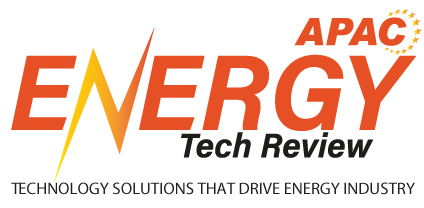 Dr. Joseph Armstrong, CTO
Dr. Joseph Armstrong, CTOSelected as one of the Top 10 EV Charging Solutions Providers in 2025, Edison has taken a different approach from the mainstream Direct Current Fast-Charging (DCFC) solutions that rely solely on a direct grid connection to deliver power.
Conventional charging stations draw power from the grid in real-time when an EV connects. This causes strain on the grid, and often results in high costs for power, since EVs typically connect during hours when electricity cost is highest. Additionally, because grid power arrives as Alternating Current (AC), traditional DCFC stations use multiple segments of AC and DC throughout the system to eventually deliver DC-based power to the EV. Each of these multiple conversions and adjustments results in power loss and reduced efficiency. Edison utilizes a Battery Energy Storage System (BESS) that acts as a reservoir to hold energy and to deliver on-demand DC power to an EV. The BESS is charged via DC current from a photovoltaic array and is only augmented with grid power overnight when electricity cost and demand is low. Edison’s unique approach effectively bypasses grid constraints and ensures an experience like fueling an Internal Combustion Engine (ICE) vehicle.
Dr. Joseph Armstrong, CTO, says, “Edison will charge EV batteries up to 80 percent of capacity in as little as 10 minutes, which equates to about 50 kWh or 150 to 200 miles for most EVs. Some variability will depend upon an individual EV’s ability to accept that power level.”
Integrated with its proprietary intelligent Energy Management System (EMS), Edison also ensures that its chargers will always have sufficient energy to maintain the XFC rates while coping with variables in solar energy input, EV charging demand and the availability of grid energy. The peak-shaving and energy arbitrage strategy is leveraged by charging the BESS overnight when electricity rates are at their lowest, storing energy for use during the peak hours when EV charging demand is high, and rates are more expensive. This “buy low, sell high” approach enables Edison to significantly lower operating costs and provide superior pricing to customers.
Edison will charge EV batteries up to 80 percent of capacity in as little as 10 minutes, which equates to about 50 kWh or 150 to 200 miles for most EVs
From a consumer’s standpoint, the focus is on the cost savings and charging speed and convenience. Consumers benefit from Edison’s ability to keep charging costs down by utilizing overnight grid recharges, stable power from renewable sources, and strategic energy management, which reduces peak demand costs. This translates to affordable and consistent pricing at charging stations, minimizing “charge anxiety” and providing a seamless experience. For shareholders, the value lies in the operational efficiency and profitability of Edison’s approach. The energy arbitrage model along with self-generated solar power, enables Edison to optimize the timing of power usage, resulting in higher gross margins, stronger financial returns and a sustainable business model.
Finally, Edison’s fully DC-coupled solution also decouples EV charging from the utility peak rate structures, thereby significantly reducing the burden that anticipated growth of EVs will have upon the utility grid which is already at limits in most areas of the country. This sustainability effort is especially crucial given the ever-increasing demand for electricity with the emergence of an AI-driven economy that requires mega-scale data centers.





